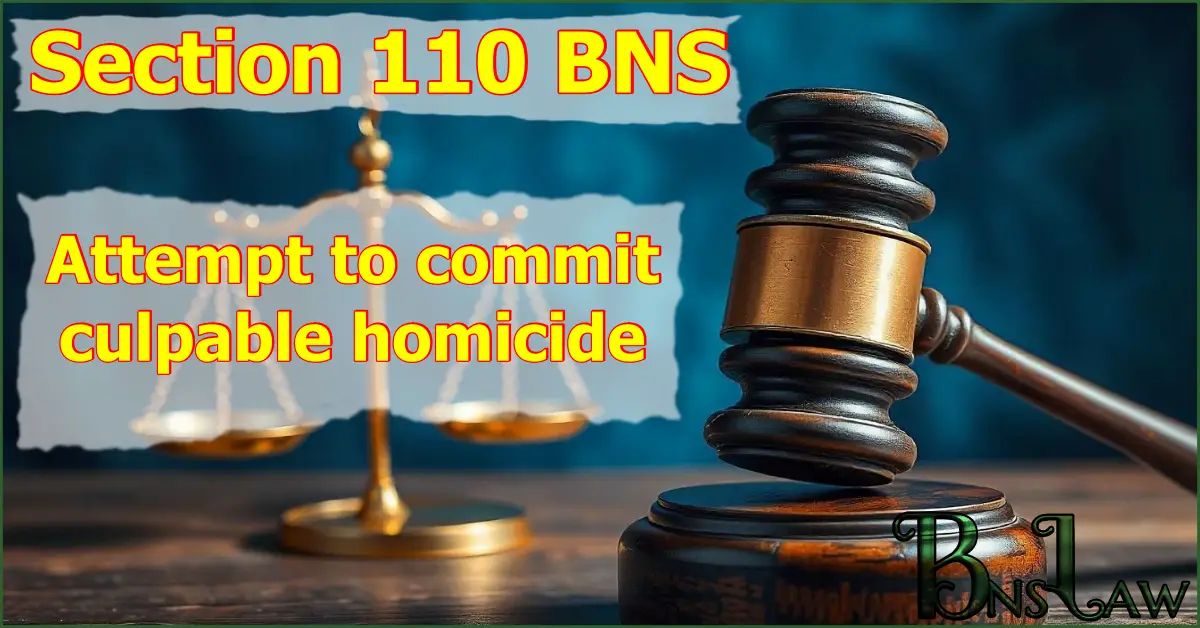Section 110 BNS | BNS 110
Whoever does any act with such intention or knowledge and under such circumstances that, if he by that act caused death, he would be guilty of culpable homicide not amounting to murder, shall be punished with imprisonment of either description for a term which may extend to three years, or with fine, or with both; and, if hurt is caused to any person by such act, shall be punished with imprisonment of either description for a term which may extend to seven years, or with fine, or with both.
Illustration
A, on grave and sudden provocation, fires a pistol at Z, under such circumstances that if he thereby caused death, he would be guilty of culpable homicide not amounting to murder. A has committed the offence defined in this section.
READ OTHER SECTIONS OF CHAPTER VI — OF OFFENCES AFFECTING THE HUMAN BODY
FAQs of BNS Section 110
-
110 BNS punishment and fine
Punishment and fine under Section 110 of the BNS: Imprisonment for 3 years, or fine or both.
If such act causes hurt to any person: Imprisonment for 7 years, or fine, or both.
-
110 BNS cognizable or not
The offence under Section 110 of the BNS is cognizable.
-
110 BNS bailable or not
The offence under Section 110 of the BNS is non-bailable.
-
110 BNS trial court
Offence specified in Section 110 of the BNS is triable by the Court of Session.
Important Points
- Cognizable Offences: These are offences where a police officer can arrest a person without a warrant.
- Non-Cognizable Offences: These are offences where a police officer cannot arrest a person without a warrant.
- Bailable Offences: These are offences where the accused can get bail from the police station itself. All bailable offences are listed in the First Schedule of the Bharatiya Nagarik Suraksha Sanhita (BNSS).
- Non-Bailable Offences: Offences in which bail is not granted directly from the police station but after hearing the case in the court, the judge decides when bail will be granted. All non-bailable offences are listed in the first schedule of the Bharatiya Nagarik Suraksha Sanhita (BNSS).
- In the above FAQ, “trial court” means the court that has jurisdiction to try the offence.
- In the above FAQ, the expression “Magistrate of the first class” and “Any Magistrate” does not include Executive Magistrates.
Read other Sections of the BNS
Reference Link: New Criminal Laws (BNS), Ministry of Home Affairs







